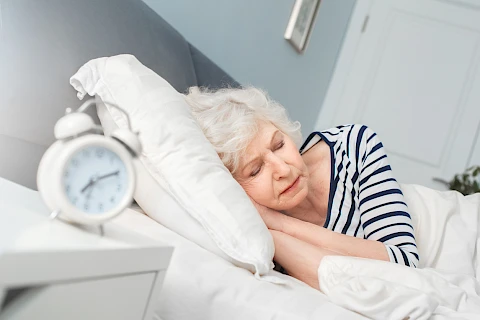
Getting a good night's sleep becomes more critical than ever as our bodies age. Quality sleep helps seniors maintain physical health, mental clarity, and emotional well-being. However, many seniors often face challenges when it comes to sleep. Common issues such as waking up frequently during the night or waking up too early can disrupt their rest. Learn about sleep changes and discover strategies to help seniors manage them effectively.
The Science Behind Senior Sleep Changes
Aging significantly impacts sleep patterns. As people get older, they often experience changes in their sleep cycles. Seniors tend to spend less time in deep sleep, which is the most restorative phase. This change can make them feel less refreshed upon waking.
Common sleep disorders can also affect seniors, including insomnia and sleep apnea. Insomnia makes it hard to fall or stay asleep, while sleep apnea involves breathing interruptions during sleep. Both conditions can lead to daytime fatigue and affect overall health.
Additionally, certain health conditions and medications can disrupt sleep patterns. Issues like arthritis, heart disease, or depression can make sleep difficult. Some medications may also have side effects that interfere with sleep, further complicating the sleep cycle for seniors.
Routine Adjustments for Better Sleep
One effective way to improve sleep is by establishing a steady sleep schedule. Falling asleep around the same time each night and rising at the same time each day helps adjust the body's internal clock.
Creating a calming routine before bed can also promote better rest. Seniors might try reading a book, listening to relaxing music, or taking a warm bath. Avoiding screens and bright lights close to bedtime is critical, as they can interfere with sleep.
Diet and exercise are beneficial, too. Eating a balanced diet and avoiding heavy meals before bedtime can aid digestion and prevent discomfort at night. Regular physical activity, like walking or yoga, can tire the body naturally, making it easier to fall asleep.
Environment Modifications to Enhance Sleep Quality
A comfortable sleep environment is necessary for good rest. Seniors should ensure their bedrooms are quiet, cool,and dark. Investing in blackout curtains or using an eye mask can block unwanted light. Maintaining a comfortable temperature in the room can prevent it from being too hot or too cold, promoting uninterrupted sleep.
Optimizing the bedroom setting can also involve using white noise machines to block disruptive sounds. Some seniors find that scented items like lavender sachets can create a calming atmosphere. Technology, such as smart lighting, can be adjusted to gradually dim and mimic natural sleep rhythms.
Balancing Sleep and Care Schedules
It's just as beneficial for caregivers to understand the importance of senior sleep needs and schedules. Caregivers can help by managing daily activities around preferred sleep times, reducing stress and exhaustion. Communication is pivotal for addressing sleep needs effectively. Seniors and caregivers should engage in open conversations about sleep preferences and challenges. This communication can ensure that care routines are adjusted to accommodate sleep patterns, producing better outcomes for everyone involved.
Get Better Sleep With the Help of Senior Helpers Havertown
Improving sleep for seniors is a task that involves multiple strategies, from routine adjustments to creating a sleep-friendly environment. Adopting consistent schedules, engaging in physical activities, and optimizing the bedroom can contribute to better sleep quality. For caregivers, supporting these routines and maintaining open communication with seniors are essential steps.
For personalized care solutions and additional support, consider reaching out to Senior Helpers Havertown. We serve Ambler, Havertown, Newtown Square, Glenside, and Media, offering tailored care to suit your needs. Contact us to enhance your loved one's quality of life through better sleep.